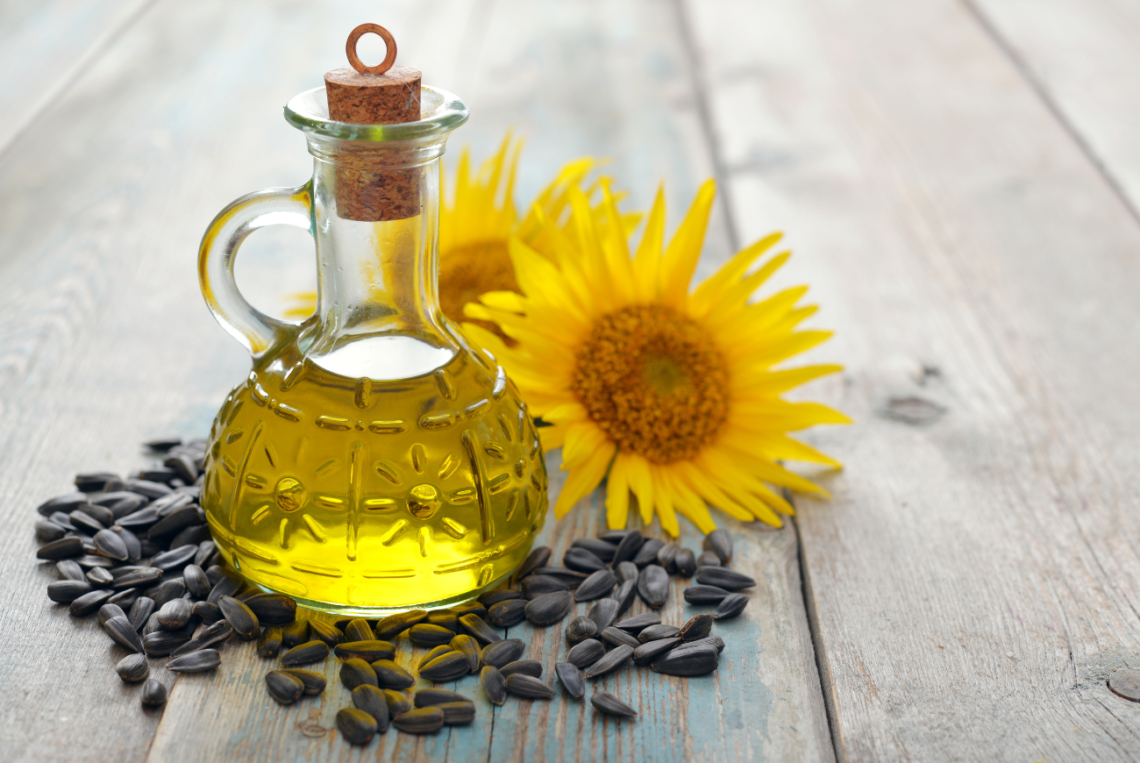
Seed Oils Uncovered: Are the Risks Greater Than the Benefits?
In recent years, seed oils—such as canola, soybean, sunflower, and corn oils—have become central to discussions on healthy eating. While widely used in home kitchens and food manufacturing, questions have emerged about whether their potential risks may outweigh their benefits. To better inform our choices, let’s take a closer look at the facts about seed oils, including their nutritional profiles, processing methods, and potential impact on health.
What are Seed Oils?
Seed oils are extracted from various seeds, including canola, sunflower, soybean, and safflower. They’re commonly used in cooking, baking, and food production due to their mild flavor, affordability, and high smoke point. These oils are primarily composed of polyunsaturated fats, including omega-6 fatty acids—an essential fat that the body needs in small amounts.
What are the Benefits of Seeds Oils?
Despite some online claims, there are numerous evidence-backed reasons to include seed oils in your diet.
Heart Health
Seed oils are generally low in saturated fats and rich in polyunsaturated fats, which can support heart health by helping to lower LDL (bad) cholesterol levels. Replacing saturated fats with unsaturated fats has been shown to reduce the risk of cardiovascular disease. The American Heart Association endorses the use of seed oils as part of a heart-healthy eating pattern.
Nutrient Content
Certain seed oils, such as sunflower and safflower oils, are rich in vitamin E, a powerful antioxidant that protects cells from oxidative damage and supports immune function. The Academy of Nutrition and Dietetics, representing over 100,000 registered dietitians, recommends the use of seed oils as a healthy source of dietary fatty acids.
Versatility in Cooking
Many seed oils have a high smoke point, making them ideal for various cooking methods, including frying and sautéing. Their neutral flavor also makes them suitable for a range of dishes without overpowering other ingredients.
What are the Potential Risks of Seed Oils?
While seed oils can offer some health benefits, there are also potential risks to consider, especially when they are consumed in large amounts or used in certain ways.
High Omega-6 Content
One of the main concerns with seed oils is their high omega-6 fatty acid content. While omega-6s are essential, excessive intake—especially in the absence of sufficient omega-3 fatty acids—may promote inflammation in the body, potentially increasing the risk of chronic diseases like heart disease, diabetes, and obesity. Balancing omega-6 and omega-3 intake is essential, as an imbalance could lead to pro-inflammatory effects.
Processing Methods
Many seed oils are refined using high heat and chemical solvents, which can degrade their nutritional quality and lead to the formation of potentially harmful trans fats. Highly refined oils also lack the naturally occurring antioxidants found in unprocessed oils, which would otherwise help protect against oxidative damage.
Oxidation and Free Radicals
When exposed to high heat, seed oils can oxidize, leading to the formation of free radicals—unstable molecules that can damage cells and tissues. Consuming oxidized oils may increase the risk of inflammation and oxidative stress, contributing to various chronic conditions.
Overconsumption & Processed Foods
Seed oils are prevalent in processed foods, often leading to a diet high in omega-6s and relatively low in omega-3s, which can make achieving a balanced fatty acid profile challenging. Additionally, like all oils, seed oils are calorie-dense, and overuse can contribute to excessive calorie intake, potentially leading to weight gain and associated health risks.
Balancing the Benefits with the Risks
While seed oils have certain nutritional benefits, such as providing essential fatty acids and vitamins, moderation is key. Here are a few tips for including seed oils in a balanced diet:
- Rotate Your Oils: Use a variety of oils in your cooking to balance your intake of different types of fats. For example, olive oil is rich in monounsaturated fats, which are more stable at higher temperatures and offer cardiovascular benefits without the high omega-6 content.
- Choose Unrefined or Cold-Pressed Options: When possible, select unrefined or cold-pressed seed oils, which retain more nutrients and fewer potentially harmful compounds than highly processed oils.
- Focus on Omega-3-Rich Foods: Balance your intake of omega-6 fatty acids by including omega-3-rich foods in your diet, such as fatty fish, flaxseeds, and walnuts, to support a healthy inflammatory response.
- Cook at Lower Temperatures: To avoid oxidation, use seed oils at medium or low heat, or choose oils with a higher heat stability, like avocado oil, for high-temperature cooking.
Key Takeaways
The debate on seed oils often comes down to how they’re used and in what amounts. For most people, moderate consumption of seed oils, especially when paired with a diet rich in omega-3s and other unprocessed fats, is unlikely to pose major health risks. However, if your diet is heavily reliant on seed oils or processed foods, it may be worth considering alternative oils and more omega-3-rich foods to improve your overall balance of healthy fats.
While seed oils can be part of a balanced diet, being mindful of their potential effects, particularly regarding inflammation and oxidation, can support healthier choices. In the end, as with most aspects of nutrition, it’s all about balance!
- There’s no reason to avoid seed oils and plenty of reasons to eat them. www.heart.org. Accessed November 4, 2024. https://www.heart.org/en/news/2024/08/20/theres-no-reason-to-avoid-seed-oils-and-plenty-of-reasons-to-eat-them
- Vannice G, Rasmussen H. Position of the academy of nutrition and dietetics: dietary fatty acids for healthy adults. Journal of the Academy of Nutrition and Dietetics. 2014;114(1):136-153. doi:10.1016/j.jand.2013.11.001
- St KRNC 151 WL, Collins S 1400 8022 CDF. Cooking with Fats and Oils: Can they withstand the heat? Kendall Reagan Nutrition Center. Accessed November 4, 2024. https://www.chhs.colostate.edu/krnc/monthly-blog/cooking-with-fats-and-oils/
- Harnisch-Weidauer L. What you need to know about cooking oils and cancer. Dana-Farber Cancer Institute. September 14, 2023. Accessed November 4, 2024. https://blog.dana-farber.org/insight/2023/09/what-you-need-to-know-about-cooking-oils-and-cancer/
- Simopoulos AP. The omega-6/omega-3 fatty acid ratio: health implications. OCL. 2010;17(5):267-275. doi:10.1051/ocl.2010.0325
- Gharby S. Refining vegetable oils: chemical and physical refining. The Scientific World Journal. 2022;2022:6627013. doi:10.1155/2022/6627013
- Ambreen G, Siddiq A, Hussain K. Association of long-term consumption of repeatedly heated mix vegetable oils in different doses and hepatic toxicity through fat accumulation. Lipids Health Dis. 2020 Apr 13;19(1):69. doi: 10.1186/s12944-020-01256-0. PMID: 32284066; PMCID: PMC7155260.
- Avenue 677 Huntington, Boston, Ma 02115. Scientists debunk claims of seed oil health risks. News. June 22, 2022. Accessed November 4, 2024. https://www.hsph.harvard.edu/news/hsph-in-the-news/scientists-debunk-seed-oil-health-risks/


You May Also Like

Non-Nutritive “Artificial” Sweeteners and Weight Loss
June 4, 2024
Banning Artificial Food Dyes: Health Risk or Overreaction?
December 17, 2024
